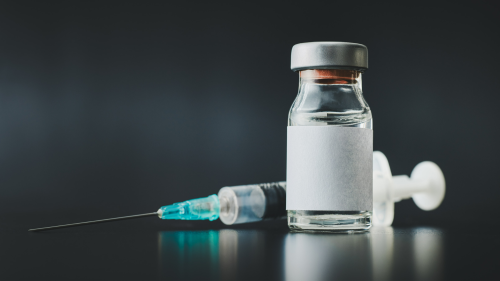
-
Understanding primary immunodeficiency (PI)

Understanding PI
The more you understand about primary immunodeficiency (PI), the better you can live with the disease or support others in your life with PI. Learn more about PI, including the various diagnoses and treatment options.
-
Living with PI
-
Addressing mental health
-
Explaining your diagnosis
- General care
- Get support
- For parents and guardians
-
Managing workplace issues
- Navigating insurance
-
Traveling safely

Living with PI
Living with primary immunodeficiency (PI) can be challenging, but you’re not alone—many people with PI lead full and active lives. With the right support and resources, you can, too.
-
Addressing mental health
-
Get involved

Get involved
Be a hero for those with PI. Change lives by promoting primary immunodeficiency (PI) awareness and taking action in your community through advocacy, donating, volunteering, or fundraising.
-
Advancing research and clinical care
-
Research Grant Program
-
Consulting immunologist
-
Diagnosing PI
-
Getting prior authorization
-
Clinician education
-
Survey research
-
Participating in clinical trials

Advancing research and clinical care
Whether you’re a clinician, researcher, or an individual with primary immunodeficiency (PI), IDF has resources to help you advance the field. Get details on surveys, grants, and clinical trials.
-
Research Grant Program
The U.S. Food and Drug Administration (FDA) and the U.S. Centers for Disease Control and Prevention (CDC) have taken steps to simplify COVID-19 vaccine recommendations and to provide additional protection to high-risk populations.
On April 18, 2023, FDA authorized the bivalent version of both Pfizer/BioNTech’s and Moderna’s COVID-19 mRNA vaccines for use as all vaccine doses, primary or booster, in those who are at least 6 months old. Simultaneously, FDA revoked the emergency use authorizations (EUAs) for both monovalent versions of the vaccines. The bivalent vaccines protect against both the original 2019 strain of COVID-19 and the newer omicron BA.4/BA.5 variant. Previously, the bivalent vaccines were only authorized to be used as boosters following a primary vaccination series with a monovalent vaccine.
In addition, FDA authorized a second booster dose of either bivalent vaccine for those who are 65 and older or who are moderately to severely immunocompromised and have already received one bivalent booster dose. Those who are 65 and older must wait four months between bivalent doses, and those who are immunocompromised must wait two months between bivalent doses. The exception is children younger than 5 years old who are immunocompromised—their eligibility for a second bivalent booster depends on their vaccine history.
On April 19, 2023, CDC released updated COVID-19 vaccine recommendations in line with FDA’s authorization changes. CDC recommends that everyone 6 and up receive at least one dose of a bivalent mRNA vaccine, regardless of previous vaccination status. For those 65 and older or who are immunocompromised, CDC allows an additional dose of bivalent mRNA vaccine. Again, children younger than 5 who are immunocompromised have different recommendations depending on past vaccinations.
Topics
This page contains general medical and/or legal information that cannot be applied safely to any individual case. Medical and/or legal knowledge and practice can change rapidly. Therefore, this page should not be used as a substitute for professional medical and/or legal advice. Additionally, links to other resources and websites are shared for informational purposes only and should not be considered an endorsement by the Immune Deficiency Foundation.
Related resources

Foundation provides guidance amid changing vaccine recommendations

Foundation to follow medical societies' vaccine schedules in light of ACIP hepatitis B decision

Update: ACIP meeting adds to COVID-19 vaccine confusion
Sign up for updates from IDF
Receive news and helpful resources to your cell phone or inbox. You can change or cancel your subscription at any time.





The Immune Deficiency Foundation improves the diagnosis, treatment, and quality of life for every person affected by primary immunodeficiency.
We foster a community that is connected, engaged, and empowered through advocacy, education, and research.
Combined Charity Campaign | CFC# 66309

